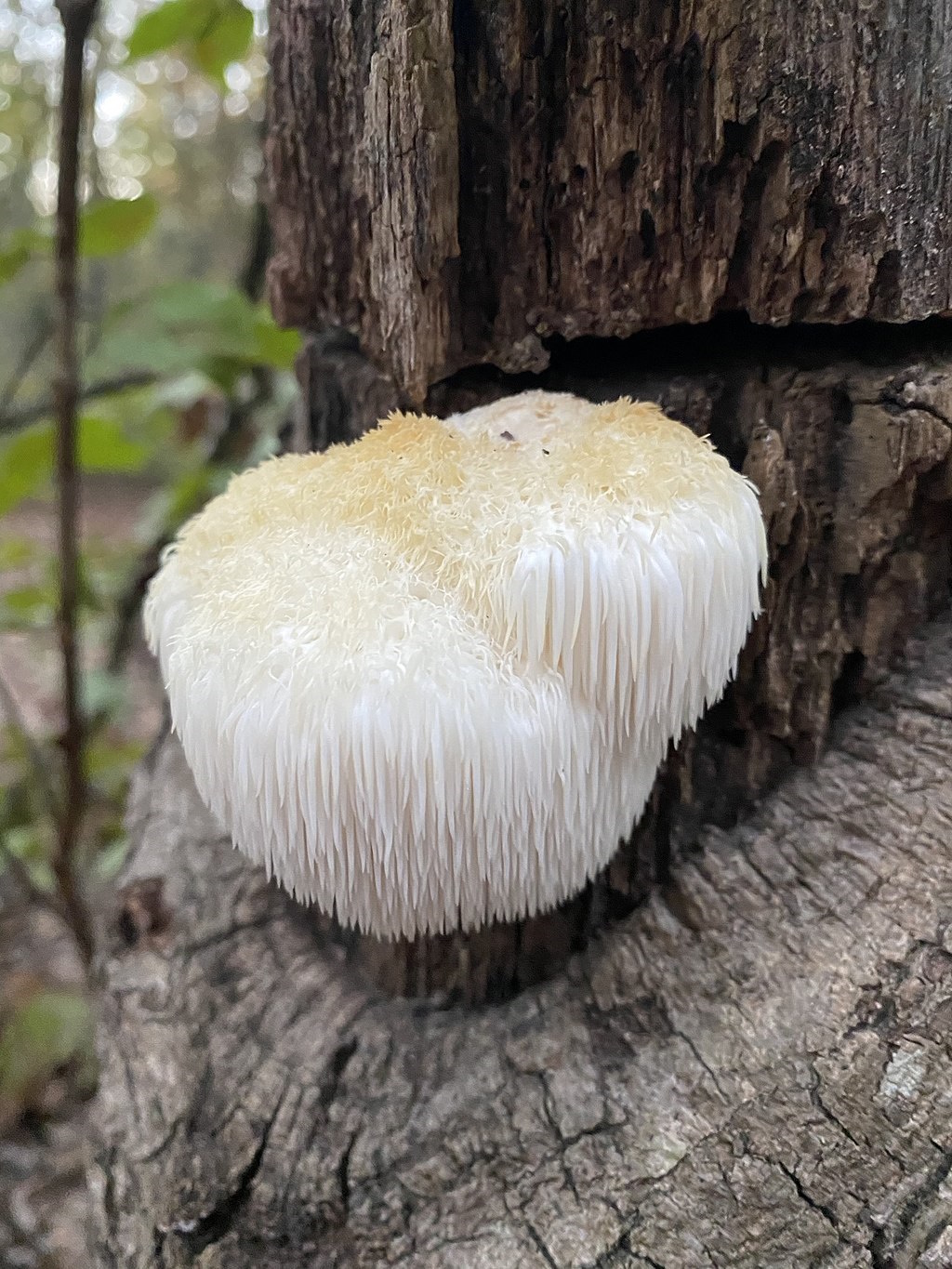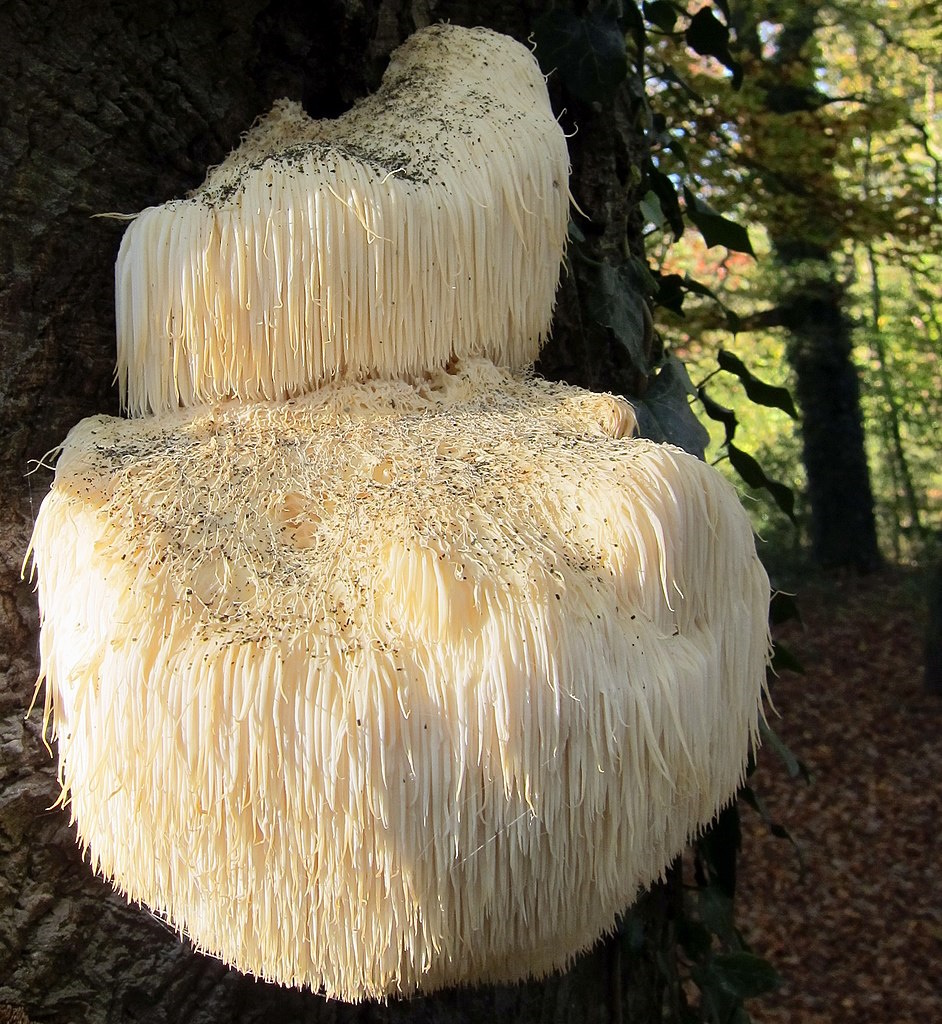Do Lion’s Mane Mushrooms Really Improve Your Brain? Here’s What the Science Says
- Written by Robert Johnson

The news (and our social media feeds) are chock-full of mushroom headlines. While psychedelic mushrooms and their mental health benefits have gotten the most attention, functional mushrooms (otherwise known as medicinal mushrooms, adaptogenic mushrooms, or non-hallucinogenic mushrooms) also impact our brains.
While many functional mushrooms are thought to support brain health, lion’s mane mushrooms (also known as Hericium erinaceus) have gained a reputation as the “smart mushroom” because we have so much science that supports their neurological benefits. There's a good reason why lion's mane is almost always found in mushroom coffee: it really does provide a lot of the benefits we look for in caffeine, plus long-term neuroprotection.

As one study noted, “Some of the bioactive compounds extracted from H. erinaceus have been shown to recover, or at least ameliorate, a wide range of pathological brain conditions such as Alzheimer's disease, depression, Parkinson's disease, and spinal cord injury.”
The bioactive compounds found in lion’s mane, including polysaccharides, hericenones and erinacines, offer benefit to the human brain—and may even be able to ameliorate damage or degeneration. Here's a cheat sheet of all the ways in which science says this amazing (and extremely delicious) fungus can support neurological health and repair while improving memory, energy and mood.
Lion’s mane stimulates the production of Nerve Growth Factor (NGF). Nerve Growth Factor (NGF), is a protein that plays a crucial role in the growth, maintenance, and survival of neurons (nerve cells). NGF promotes the development of new neurons and helps maintain the health of existing ones. It’s essential for cognitive function, as well as protection against age-related cognitive decline.
A new study published in the Journal of Neurochemistry found that the compounds found in lion's mane can promote neurogenesis (the process by which new neurons are formed in the brain) and enhance memory. Researchers said these compounds could have clinical applications in treating and preventing neurodegenerative disorders such as Alzheimer’s and Huntington’s disease.

In another study, published in Phytotherapy Research, lion’s mane extract improved cognitive function in adults between the ages of 50 and 80 years old. The study subjects had experienced a mild loss of cognitive functions, either due to aging or other conditions, but their cognitive health improved significantly after taking lion’s mane supplements for just 16 weeks.
“Lion’s mane mushroom is good for stimulating neural nerve growth,” says Dr. Kalipada Pahan, professor of neurology, biochemistry and pharmacology at the Rush University Medical Center in Chicago. “It has been widely studied, and a number of studies have shown it is good for cerebral and sensory development and neurite outgrowth.”
Lion’s mane has neuroprotective properties. Keeping our brains healthy and our memories sharp are priorities for most of us as we age. Lion’s mane’s bioactive compounds, particularly hericenones and erinacines, may help protect brain cells from the damage caused by oxidative stress and inflammation.
Our brains are prone to oxidative damage, and oxidative stress correlates with neurodegenerative diseases. Oxidative stress is a contributor to neurodegenerative diseases like Alzheimer's and Parkinson's, and some researchers say it can play a major role in depression as well.
The good news: Some of the bioactive compounds extracted from H. erinaceus have been shown to recover, or at least ameliorate, a wide range of pathological brain conditions, from Alzheimer's disease and depression to Parkinson's disease and even spinal cord injury. A 2021 study in Antioxidants found that lion’s mane mushrooms could help patients with traumatic brain injury (TBI), specifically because of its anti-inflammatory and neuroprotective properties, while A 2020 study found that “H. erinaceus may be a potential alternative medicine for the treatment of depression.”
Clearly, we need more research. But these findings indicate lion’s mane mushrooms may be able to impact mood as well as function—and they maye be able to help our brains recover from the damage caused by oxidative stress and inflammation.
Lion’s mane supplements may improve synaptic plasticity. Synapses are the connections between neurons, the fundamental cells of the brain and nervous system. Synaptic plasticity refers to the ability of neurons to modify these connections, which are crucial for learning, memory, and cognitive flexibility. Impaired plasticity plays a role in both Alzheimer's disease and schizophrenia. Research suggests that lion's mane mushrooms can enhance synaptic plasticity, improving the connection and communication of brain cells.
In a double-blind study done over the course of 49 weeks, patients with mild Alzheimer's disease who took lion’s mane supplements demonstrated higher cognitive ability scores than patients who had not taken the supplements.
All Mushrooms are Magic—And Lion’s Mane is No Exception
Lion's mane mushrooms are not hallucinogenic—but their health properties are pretty magical. They are a delicacy when consumed fresh, and their rich flavor makes them an excellent supplement for meat in many dishes, with a taste often compared to lobster. Their perishability means they can be hard to find in Western produce aisles, so most of the lion's mane we consume is in powder or supplement form. Individual results may vary, but I consume lion’s ane daily, and I encourage everyone I know to try it for themselves. You've got nothing to lose—and perhaps a better brain to gain.
Robert Johnson is the founder & CEO of premium mushroom product company Mycroboost and supplements manufacturer Custom Capsule Consultants. He's a cannabis and hemp industry veteran, health product expert, psychedelic advocate and seasoned entrepreneur with a 20-year track record of launching successful startup businesses in new and emerging markets. His pioneering product innovations and keen insights into the future of the health marketplace have made him a sought-after consultant, conference speaker, and op-ed contributor. His bylines have appeared in Rolling Stone, Cannabis Industry Daily, MG Magazine, Natural Products Insider, Nutraceuticals World, Nutritional Outlook, and Green Entrepreneur.
Prior to founding Custom Capsule Consultants in 2019, Robert was Co-Founder and Head of Sales at TetraLabs. During his seven-year tenure at TetraLabs, he helped pioneer the development of the industry’s first premium pharmaceutical-grade cannabinoid products, as well as the use of fractional distillation to clarify and isolate THC oil, and the first softgels on the market. He also served as co-owner and CEO at CannaCatering, which he grew from a bootstrapped start-up to a California industry leader in two years.
Links to all of Bob’s bylines can be found here.
Who we are:
Mycroboost is a premium functional mushroom company, creating best-quality therapeutic mushroom products that make natural health and better living accessible to all.
We make vegan mushroom softgels, gummies and coffee, using only certified organic fruiting body mushroom extracts—no grains, no filler, just mushroom magic.
Founded by a dedicated group of myconerds and supplement skeptics, Mycroboost makes science-based mushroom formulations that support your well-being at every level. Welcome to the mushroom renaissance!
INSTAGRAM: @mycroboost
2021
Five Supplement Ingredient Trends Set To Dominate 2021 [Natural Products Insider, June 2021]
The Real Reason Some Industry Leaders Want Delta 8 Banned [Cannabis Industry Journal, August 2021]
Choosing A Contract Manufacturer for Dietary Supplements: Five Red Flags to Watch Out For [Nutraceuticals World, August 2021]
Opinion: It’s High Time to Embrace Delta-8 THC [MG Magazine, September 2021]
FDA’s efforts to ban kratom will lead to more overdoses, deaths [Natural Products Insider, November 2021]
Can Psychedelics and Capitalism Co-Exist? 3 Things I Learned at the Oakland Psychedelic Conference [Rolling Stone, November 2021]
The New Approach To Nootropics: Addressing Demand For Brain Health Supplements Across Three Different Generations Of Consumers [Nutritional Outlook, December 2021]
2022
Finding Clarity Amid the Coronavirus Clickbait News [MG Magazine, April 2022]
All Mushrooms Are Magic: Why Our Fascination With Fungi And Functional Mushroom Formulas Is More Than Just A Trend [Nutritional Outlook, May 2022]
How to Choose the Best Functional Mushroom Supplements [Green Entrepreneur, May 2022]
Can Psychedelics Avoid the Mistakes of the Cannabis Industry? [Rolling Stone, July 2022]
The Business Case For Kratom: Why This Controversial Herbal Remedy Presents Opportunities Worth The Risk, Says Expert [Nutritional Outlook, August 2022]
2023
Market Battle Lines are Being Drawn in Psychedelics—But What are the Warring Camps Really Fighting About? [March 2023]
Psychedelic Therapy Could Revolutionize Mental Health—But Who Gets to Try It? [June 2023]
Speaking engagements:
2020-2021 CBD Training Academy
Can Capitalism & Psychedelics Co-Exist? [Video, panel moderator, 2022 Oakland Psychedelic Conference]
The Future Of Business And Psychedelics [Written summary, panelist, California Psychedelic Conference, 2023]
2023 Science of Psychedelics Conference
2023 Psychedelic Club of UCSB
2023 District 216 Psychedelic Social Club
I'm a seasoned cannabis and hemp industry veteran, startup founder, product developer, business consultant, CEO of supplement manufacturer Custom Capsule Consultants and founder of Mycroboost, a functional mushroom product line.
I've written about my work in mushroom product development and the burgeoning psychedelic industry for Rolling Stone, Natural Products Insider, Nutraceuticals World, and I've been a speaker and panelist at the California Psychedelic Conference and the Oakland Psychedelic Conference.
I've also written about the business opportunities in hemp, cannabinoids, kratom, mushrooms and supplements for Cannabis Industry Journal, MG Magazine, Green Entrepreneur and Nutraceuticals World.
Psychedelic Investors Have Raised Hundreds of Millions in Capital—But They Ignore the Grassroots Psychedelic Community at Their Peril
All Mushrooms Are Magic: How Non-Psychedelic Mushrooms Deliver Brain, Energy and Mood Benefits, Minus the Hallucinations
Beyond Psilocybin: Four Psychedelic Compounds That Don’t Come from Mushrooms
Psychedelic Activists Decry the Investment Class—But They May be the Ones who Can Get FDA Approval
MDMA for PTSD: This Club Drug Could be More Effective for Trauma Than Any Treatment We've Found Yet
“There’s Always a Risk:” Will Guardrails and Safety Concerns Block Access to Psychedelic Therapy?
Is the Shroom Boom Just Another Health Trend—or is it Here to Stay?
Synthetic Psychedelics are Controversial—But They're Far More Sustainable
Can You Patent Set and Setting? Biotech Psychedelic Companies are Trying
Can Psychedelics Learn from the Mistakes of the Legal Cannabis Industry

